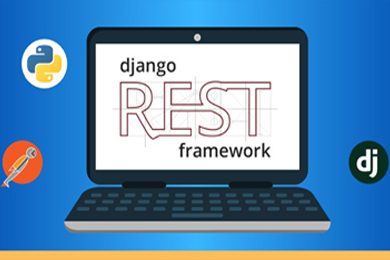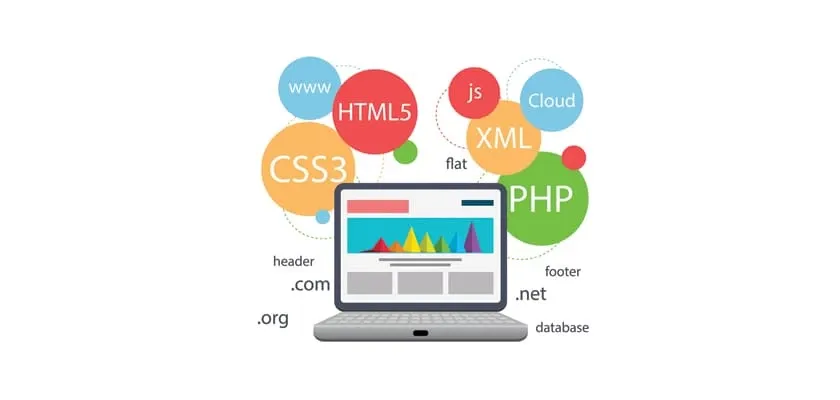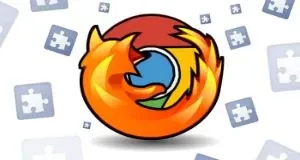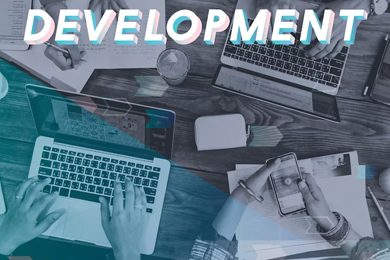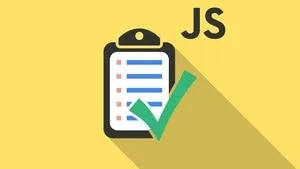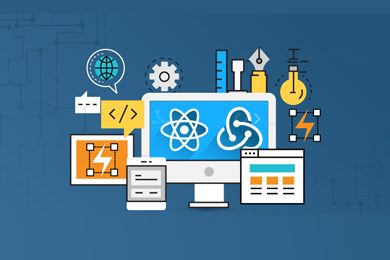This plan includes
- Limited free courses access
- Play & Pause Course Videos
- Video Recorded Lectures
- Learn on Mobile/PC/Tablet
- Quizzes and Real Projects
- Lifetime Course Certificate
- Email & Chat Support
What you'll learn?
- How to build a REST API web service with the Django REST framework
- Set up a development environment with Python, Django, PostgreSQL, and Postman
- Understand the fundamentals of RESTful architecture and API design principles
- Model resources and perform serialization using Django models and serializers
- Implement CRUD operations (Create, Read, Update, Delete) on API resources using Django REST Framework
- Handle relationships between models and serialization for complex API structures
- Explore advanced API features such as CORS for improved functionality and scalability
- Writing API Endpoints like GET, POST, PUT, and DELETE methods
- Optimize database queries using PostgreSQL for enhanced performance
- Use Postman for comprehensive API testing, including request sending, response inspection, and API Calling
- REST API testing workflows in Postman for efficient and reliable testing
- Handle common error scenarios and debug your APIs effectively
- Sending Images or Docs to upload using Django REST APIs
Course Overview
The "Build REST APIs with Python, Django REST Framework, PostgreSQL, and Postman API Testing" course is a comprehensive and practical learning experience that will equip you with the skills and tools needed to create robust and scalable RESTful APIs using Python, Django REST Framework, PostgreSQL, and Postman for API testing.
In today's interconnected world, REST APIs play a crucial role in enabling communication between different applications and services. This course is designed to provide you with a solid foundation in building REST APIs using Python, leveraging the power of Django REST Framework, and utilizing PostgreSQL as the database backend. Additionally, you will learn how to test your APIs effectively using Postman.
Throughout the course, you will start with the fundamentals and gradually progress to more advanced topics. You will learn how to set up a development environment with Python, Django, and PostgreSQL, and configure Django REST Framework for API development. The course will cover key concepts such as resource modelling, serialization, JSON Parsing, and JSON Response on HTTP Requests while emphasizing the importance of data integrity and security.
By combining Python, Django REST Framework, and PostgreSQL, you will gain hands-on experience in implementing CRUD operations (Create, Read, Update, Delete) on your API resources, managing relationships between models, and optimizing database queries for improved performance. You will also learn to create GET, POST, PUT, and DELETE methods for your serializer model classes to enhance the functionality and scalability of your APIs.
Furthermore, the course will introduce you to Postman, a popular API testing tool. You will learn how to create comprehensive test suites to verify the functionality and behaviour of your APIs. From sending requests and inspecting responses on workflows, you will become proficient in using Postman to ensure the quality and reliability of your APIs.
Real-world examples and practical exercises will be integrated into the course, allowing you to apply your newfound knowledge in a hands-on manner. You will develop API endpoints, write APIs and tests, and handle error scenarios.
Key Topics Covered:
- Setting up a development environment with Python, Django, PostgreSQL, and Postman
- Introduction to RESTful architecture and API design principles
- Resource modeling and serialization using Django models and serializers
- Applying Cross-Origin-Resource-Sharing (CORS)
- Implementing CRUD operations on API resources with Django REST Framework
- Managing relationships between models and serialization
- Advanced API features: making a unique record to update
- Optimizing database queries with PostgreSQL
- Introduction to Postman and API testing fundamentals
- Creating comprehensive test suites in Postman
- Handling common error scenarios and debugging
- Writing a Base path setting to save External images or docs on API requests
- Postman API to save external Images to local project
By the end of this course, you will have the skills and confidence to develop robust REST APIs using Python, Django REST Framework, PostgreSQL, and effectively test them using Postman. Whether you're a beginner seeking to enter the world of API development or an experienced developer looking to enhance your skills, this course will provide you with the knowledge and hands-on practice necessary to build high-quality and thoroughly tested backend web APIs.
Pre-requisites
- Fundamentals of Programming (optional)
- You will learn everything you need to know REST API
- Fundamentals of Basic SQL Queries (optional)
Target Audience
- Beginners software developers curious about Django REST API application development
- Web developers who want to learn how to build REST API for mobile applications using Django REST and PostgreSQL
- Python developers who want to expand their skill set toward REST WEB API development
- Students or professionals looking to enhance their Restful API web development skills with Django REST framework and PostgreSQL
- Who wants to learn to develop Web Services using Python Rest API
- Who wants to build HTTP REST API backend services
Curriculum 51 Lectures 04:51:02
Section 1 : Getting started
- Lecture 2 :
- Getting started on Windows, macOS, and Linux
- Lecture 3 :
- How to ask great questions
- Lecture 4 :
- FAQs
Section 2 : Setting up a Python development
- Lecture 1 :
- Installing Python step by step
- Lecture 2 :
- Installing PyCharm IDE (code editor) for development
- Lecture 3 :
- Creating the first project
- Lecture 4 :
- Command line basics
- Lecture 5 :
- Installing and accessing pip command
- Lecture 6 :
- Postman API platform installation
- Lecture 7 :
- Write and Run Hello World program
Section 3 : Django setting up the REST API project
- Lecture 1 :
- Introduction to web framework and Django
- Lecture 2 :
- Installing Django and Djangorestframework
- Lecture 3 :
- Django(CORS) installation
- Lecture 4 :
- Creating Django project
- Lecture 5 :
- Understanding Django architecture and structured
- Lecture 6 :
- Creating a Django application
- Lecture 7 :
- Understanding Django models, views, and URL routings
- Lecture 8 :
- Registering the app to project
Section 4 : Building Django Models for API with PostgreSQL
- Lecture 1 :
- Introduction to PostgreSQL and its advantages for web applications
- Lecture 2 :
- Installing PostgreSQL and setting up
- Lecture 3 :
- pgAdmin Secure login and create database
- Lecture 4 :
- Building Django models for the REST API data structures
Section 5 : Django API Model ORM-Migrations to PostgreSQL
- Lecture 1 :
- Installing the psycopg2 module for DB connection
- Lecture 2 :
- Database (DB) connection - Django to PostgreSQL
- Lecture 3 :
- Creating and applying ORM-migrations for the PostgreSQL database
- Lecture 4 :
- SQL Querying and adding Sample Data into tables
Section 6 : Creating Serializers for Complex Datatypes
- Lecture 1 :
- Serializers in Django REST API
- Lecture 2 :
- Serializing data with Django REST Framework serializers
Section 7 : Writing REST API Endpoints
- Lecture 1 :
- Import required modules to write API methods
- Lecture 2 :
- Implementing API GET method using REST Framework
- Lecture 3 :
- Implementing API POST method using REST Framework
- Lecture 4 :
- Implementing API PUT method using REST Framework
- Lecture 5 :
- Implementing API DELETE method using REST Framework
- Lecture 6 :
- Validating data with Django REST Framework validators
- Lecture 7 :
- Handling API requests and responses
Section 8 : URLs Mapping on Application and Project
- Lecture 1 :
- Writing App URLs and path setting
- Lecture 2 :
- Write Project URLs and include app
- Lecture 3 :
- Exercise and Solution for it
Section 9 : POSTMAN for Testing API Methods
- Lecture 1 :
- Exploring Postman API app
- Lecture 2 :
- API GET method testing
- Lecture 3 :
- API POST method testing
- Lecture 4 :
- API PUT method testing
- Lecture 5 :
- API DELETE method testing
Section 10 : Project: Creating REST APIs Quickly
- Lecture 1 :
- Creating REST API methods at one snap
- Lecture 2 :
- Writing URLs on an app for access APIs
- Lecture 3 :
- POSTMAN API testing
Section 11 : Building Image Upload REST API Service
- Lecture 1 :
- Base image save path setting on project
- Lecture 2 :
- Write the API method to save image
- Lecture 3 :
- Adding urls path and static settings to save image
- Lecture 4 :
- Postman API to test and save image
Our learners work at
Frequently Asked Questions
How do i access the course after purchase?
It's simple. When you sign up, you'll immediately have unlimited viewing of thousands of expert courses, paths to guide your learning, tools to measure your skills and hands-on resources like exercise files. There’s no limit on what you can learn and you can cancel at any time.Are these video based online self-learning courses?
Yes. All of the courses comes with online video based lectures created by certified instructors. Instructors have crafted these courses with a blend of high quality interactive videos, lectures, quizzes & real world projects to give you an indepth knowledge about the topic.Can i play & pause the course as per my convenience?
Yes absolutely & thats one of the advantage of self-paced courses. You can anytime pause or resume the course & come back & forth from one lecture to another lecture, play the videos mulitple times & so on.How do i contact the instructor for any doubts or questions?
Most of these courses have general questions & answers already covered within the course lectures. However, if you need any further help from the instructor, you can use the inbuilt Chat with Instructor option to send a message to an instructor & they will reply you within 24 hours. You can ask as many questions as you want.Do i need a pc to access the course or can i do it on mobile & tablet as well?
Brilliant question? Isn't it? You can access the courses on any device like PC, Mobile, Tablet & even on a smart tv. For mobile & a tablet you can download the Learnfly android or an iOS app. If mobile app is not available in your country, you can access the course directly by visting our website, its fully mobile friendly.Do i get any certificate for the courses?
Yes. Once you complete any course on our platform along with provided assessments by the instructor, you will be eligble to get certificate of course completion.
For how long can i access my course on the platform?
You require an active subscription to access courses on our platform. If your subscription is active, you can access any course on our platform with no restrictions.Is there any free trial?
Currently, we do not offer any free trial.Can i cancel anytime?
Yes, you can cancel your subscription at any time. Your subscription will auto-renew until you cancel, but why would you want to?
Instructor

519397 Course Views
68 Courses



 Tech & IT
Tech & IT
 Business
Business
 Coding & Developer
Coding & Developer
 Finance & Accounting
Finance & Accounting
 Academics
Academics
 Office Applications
Office Applications
 Art & Design
Art & Design
 Marketing
Marketing
 Health & Wellness
Health & Wellness
 Sounds & Music
Sounds & Music
 Lifestyle
Lifestyle
 Photography
Photography




